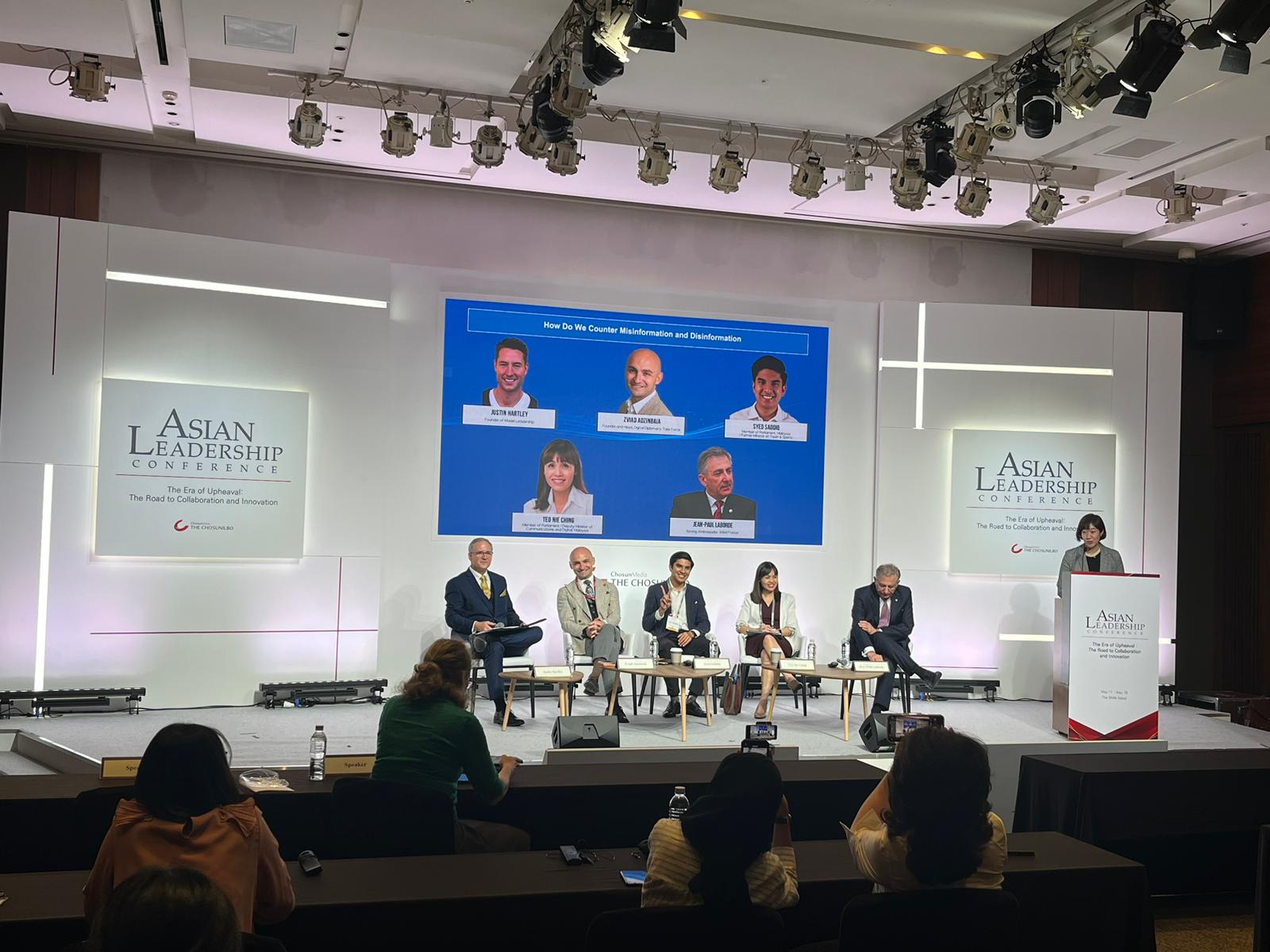In today’s world, we are experiencing the era of real-time fake news. Not only are unverified misinformation and deliberately distorted misinformation spread by political forces and others, but artificial intelligence (AI)-generated disinformation and manipulated photos are also pouring in real-time. The harm caused by fake news is significant, to the extent that many lives have been lost. However, the bigger problem is that the public is unable to take action and quickly forgets about the damages they have suffered. This was evident during the COVID-19 pandemic, where rampant fake news caused harm, and in cases where young individuals lost their lives after being incited by terrorist organizations like ISIS to join the conflicts in the Middle East. The war in Ukraine is also fiercely fought on social media platforms, as much as it is on the battlefield.
The reason why five international experts gathered at the 14th Asian Leadership Conference (ALC), organized by the Center for Asia Leadership on the 18th, was to discuss how we should cope with fake news. The session titled “How Do We Counter Misinformation and Disinformation?” was chaired by Justin Hartley, CEO and Founder, Model Leadership. The panelists included Zviad Adzinbaia, Ph.D. Fellow, International Security & Digital Diplomacy, Tufts University; Syed Saddiq, the former Minister of Youth and Sports in Malaysia; Teo Nie Ching, the Deputy Minister of Malaysia’s Ministry of Communications and Digital; and Jean-Paul Laborde, Honorary Judge, French Judicial Supreme Court.
During the session, experts recognized that individuals now have the ability to instantly disseminate information to millions of people due to the development of social media. Syed Saddiq remarked that in Malaysia, two decades ago, the government could control media messages and exercise significant authority over the press, but now, thanks to social media, democracy has advanced, and communication has become more vibrant. However, Syed Saddiq pointed out that once a video spreads on TikTok, even if it contains incorrect information, it becomes challenging to address. He referred to this as the “light and shadow” of the digital era.
The discussion also touched upon the role of fact-checking institutions. While fact-checking is a fundamental role of the media, some countries have separate fact-checking organizations that concentrate on this task. Teo Nie Ching mentioned that her country has two fact-checking centers under government agencies, emphasizing the need to maintain the independence of fact-checking and create an environment where the general public can verify information.
It was also suggested that individuals need to enhance their digital literacy, a form of “immunity,” to independently select high-quality information without falling prey to fake news. Zviad Adzinbaia stated that disinformation and misinformation have existed for a long time, and additional forms of “mutated fake news” will continue to emerge, such as during the COVID-19 pandemic. He emphasized the need for digital literacy education to strengthen immunity against fake news. Jean-Paul Laborde mentioned that to counter fake news, it is essential to respond by immediately disseminating short messages with factual information.
The session also discussed the need to strengthen the social responsibility of social media platforms. Teo Nie Ching argued that there should be increased pressure on platform companies to enhance their responsibility regarding fake news.
Learn more about the Center for Asia Leadership’s programmes in strategic foresight and adaptive leadership here at bit.ly/lead-asia.
What is your response to the rapid pace of change around us? The best response is to learn and adapt. Here is how we can help your organization adapt to ongoing disruptions and thrive amid challenging times through our Adaptive Leadership Signature Program that addresses the past culture, while building the teams’ capacity to create a new future.



